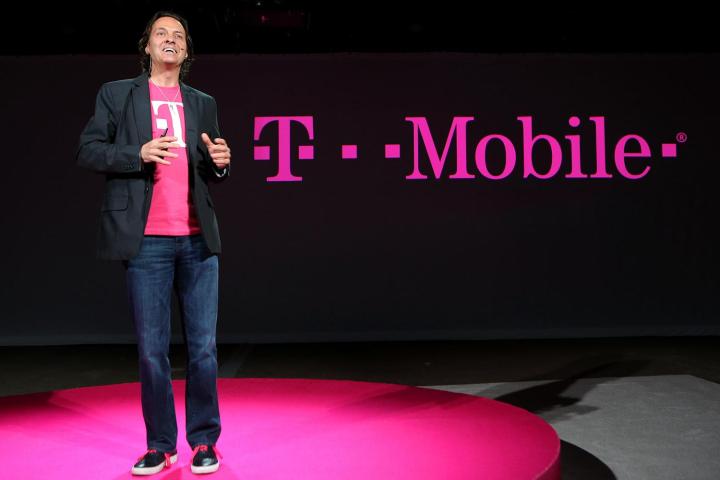
T-Mobile says 1.3 million postpaid users joined in Q4 to round out total postpaid additions to 4.9 million in 2014 alone. Postpaid customers are much more profitable to T-Mobile, so it’s key that the majority of its new subscribers signed up for those plans instead of prepaid ones. Still, the Uncarrier added a larger number of prepaid users, too, with 1 million new users added in Q4 and a total of 4 million added in 2014. The earnings report boasts that T-Mobile grabbed nearly 80 percent of industry postpaid phone growth in the fourth quarter, as well.
Has this affected the competition? Verizon added nearly a million more postpaid subscribers with 1.89 million new customers in the fourth quarter of 2014. Meanwhile, AT&T suffered a bit with the addition of just 854,000 new postpaid subscribers. Both of these big carriers also saw a pretty huge jump in turnover, though, so it seems that T-Mobile’s strategy of seducing customers away from its competitors with the offer of a contract buyout and lower prices has had an effect.
We landed 5 #uncarrier moves, killed tons of pain points and captured nearly ALL industry postpaid phone growth for the year. #sorrynotsorry
— John Legere (@JohnLegere) February 19, 2015
CEO John Legere said that the Uncarrier model is clearly convincing subscribers to join its network, but it’s also making the company much more profitable. T-Mobile earned $247 million in 2014, up from just $35 million in 2013 — That’s a pretty huge jump. However, to sustain its growth, T-Mobile acknowledges that it needs to improve its service across the board. While the Uncarrier does extremely well in cities with super fast LTE, rural areas fall by the wayside. Legere says that’s because T-Mobile needs more spectrum, and spectrum is hard to come by, given the current state of spectrum auctions.
In a blog post, Legere called upon the federal government to make spectrum auctions more fair to smaller carriers like T-Mobile. He called the last auction profitable for the FCC, but a “disaster” for consumers.
“Three companies alone spent an insane $42 billion between them, grabbing a ridiculous 94 percent of the spectrum sold at this auction,” Legere stated, adding that AT&T and Verizon already own 73 percent of all the low-band spectrum, which gives cell service and data greater penetration through barriers like buildings and walls. With the next auction for low-band spectrum coming up soon, Legere is calling for reform.
Take it a step further – email Congress and the @FCC here and tell them you want competition in wireless: http://t.co/BgUymtV0Gk
— John Legere (@JohnLegere) February 18, 2015
He wants the government to make auctions more fair by ensuring that they proceed in a timely manner, so that the big two can’t amass tons of money before hand and buy up all the spectrum. The government should also respect competition by “reserving 40 MHz or at least half of the available spectrum in the next auction for sale to the competition.” And lastly, the rules should ensure that “valuable spectrum is actually used to provide service to consumers rather than allowing it to be collected and traded like financial securities.”
Legere’s asking the government to fill a pretty tall order, but the FCC has sided with T-Mobile in the past, so anything is possible. Regardless, T-Mobile will continue to add spectrum and bolster its network, Legere promised.


